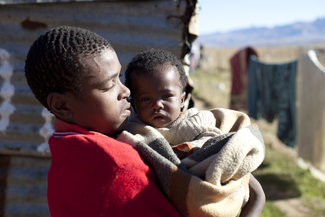

Displaying 131 - 140 of 576
Given the paucity of research on youth transitioning from alternative care (i.e. care-leaving or leaving care) in Africa, the study sought to develop and test a methodology for a cross-country, comparative study on leaving care in Africa.
In this first event of Family for Every Child's How We Care series, Family Members CINDI (South Africa), Conacmi (Guatemala) and Uyisenga Ni Imanzi (Rwanda) shared their approaches and experiences of providing psychosocial support to children and families during the COVID-19 crisis.
This article describes the psychosocial resilience processes that facilitate successful transitioning of young women as they journey out of residential care towards young adulthood.
The goal of this paper was to conduct a review of studies from 2008 to 2019 that evaluated community‐based caregiver or family interventions to support the mental health of orphans and vulnerable children (OVC) in sub‐Saharan Africa, across four domains: (a) study methodology, (b) cultural adaptation and community participation, (c) intervention strategies, and (d) effects on child mental health.
The main purpose of the follow-up evaluation was to assess first, whether participants in the Sihleng’imizi Family Strengthening programmes had retained what they had learned and were able to implement these learnings nine months following termination of the intervention; second, to compare these findings with the control group that had not been exposed to the programme; and finally, to consider the policy implications of combining cash transfers with family care programmes.
Family for Every Child, as part of its How We Care initiative, has developed a series on Psychosocial support for children and families during COVID-19, which highlights different approaches taken by three of its member organizations to providing essential psychosocial support to vulnerable children and families within the context of the pandemic.
This How We Care series explores how Family for Every Child's Members are providing essential psychosocial support to vulnerable children and families within the context of the pandemic.
FICE Israel decided to initiate a short survey to document and share information about the way different countries handled their policies and practices in residential care facilities during that period. This report presents findings and some conclusions from this primary survey.
This study used empirical data from health and social care professionals and cluster analysis to identify “barriers to” and “recommendations for” providing care and support to children living as AIDS orphans in township communities in Nelson Mandela Bay South Africa.
This study explored the parenting experiences of orphaned youth heading households in resource-constrainted environments.





